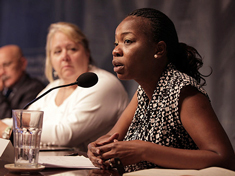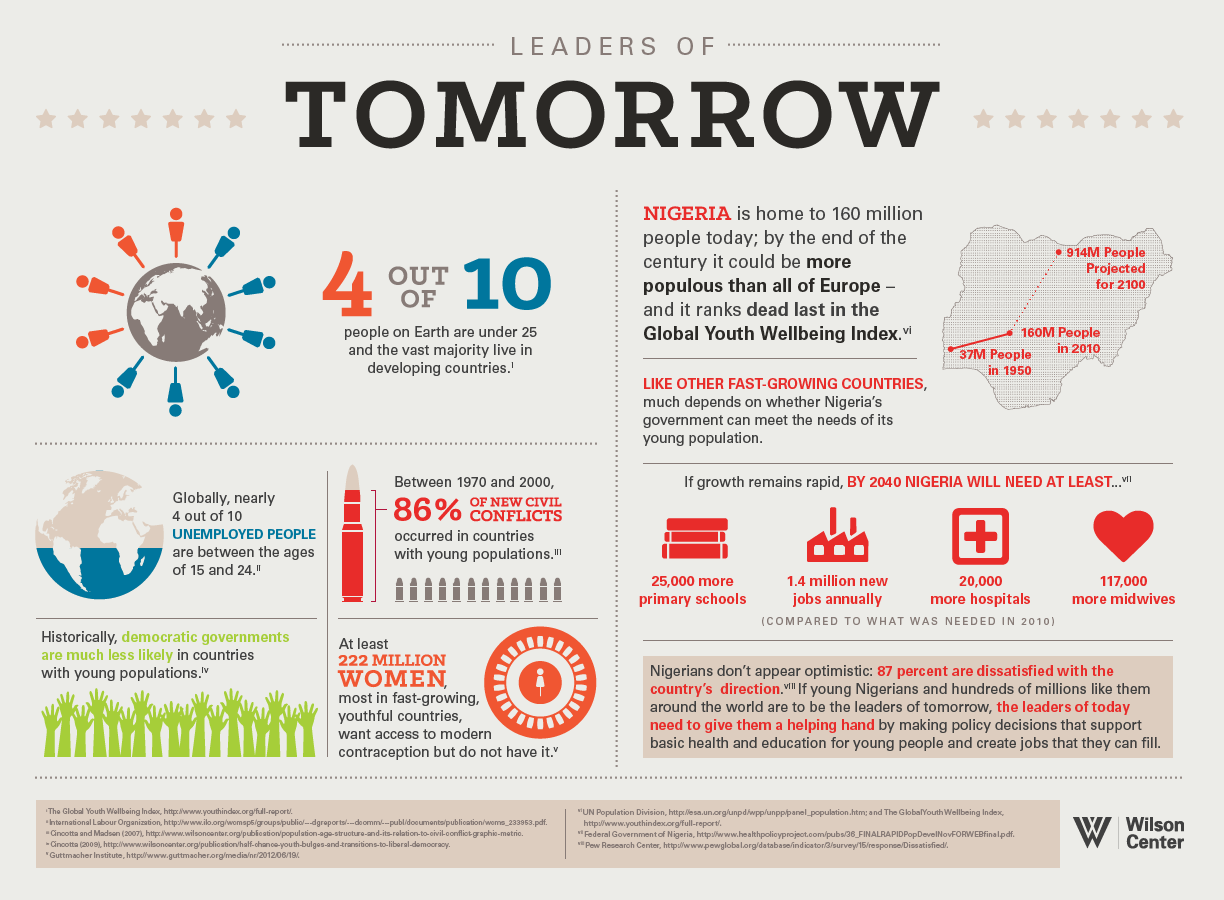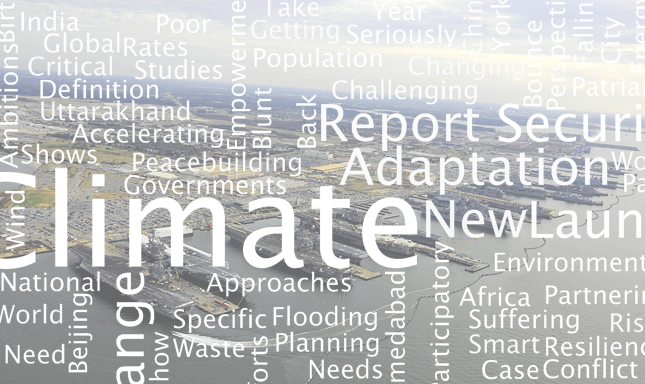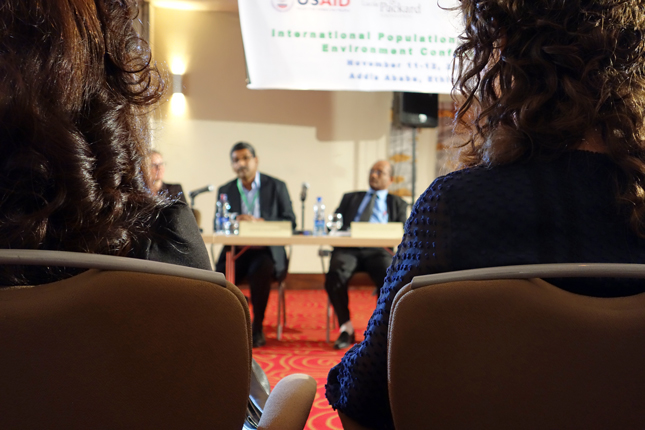-
Quality vs. Quantity: Faith Muigai on Providing Antenatal Care in Nairobi
›
In the quest to improve maternal health care for the world’s poorest women, getting more mothers into clinics for regular check-ups during pregnancy is often trumpeted as a critical starting point. But delivering antenatal care to women in low-resource settings is as much about quality as it is about quantity, says Faith Muigai in this week’s podcast.
-
Environmental Dimensions of Sustainable Recovery: Learning From Post-Conflict and Disaster Response
›
“Environmental specialists need to change,” said Anita van Breda at the Wilson Center on June 25. “In the new normal, our work has to have a different relevancy.” [Video Below]
-
Investing in the Leaders of Tomorrow: World Population Day 2014 Youth Infographic
›World Population Day began in 1987 after public imagination was sparked by the idea that there could be 5 billion people on Earth. Today, we’re well past 7 billion and according to the latest UN projections, headed north of 9 billion by mid-century.
-
Alice Thomas: For Refugees, Environmental Recovery Critical for Return to Normalcy
›
There are now well over 16 million refugees worldwide and 65 million people internally displaced by conflict and disasters, according to recent estimates. As more and more people are uprooted from their homes, mounting environmental pressures threaten to reinforce cycles of poverty and displacement if left unaddressed, says Alice Thomas in this week’s podcast.
-
Seven Billion People, One Planet: Roger-Mark De Souza on Empowering Young People
›“Population is critical to thinking about sustainability and human wellbeing, and how we live and subsist on the planet,” says ECSP’s Roger-Mark De Souza on this World Population Day.
-
Top 10 Posts for June 2014
›
Adaptation, mitigation, or suffering – those are the three choices people the world over face when confronted with climate change, wrote guest contributor Paul Wapner in one of last month’s most popular posts. Joining him were new posts on population, climate, and peacebuilding efforts in Africa and how “smart city” technologies are being applied in growing urban areas around the world.
-
From the PHE Conference in Addis Ababa, a Progress Report on Integrated Development
›
My grandmother was pleased when I told her I was heading to Ethiopia last November for an international conference focused on population, health, and the environment.
-
Richard Cincotta on Demography, Stability, and Democratization in Africa
›“You can look into the future a couple decades and get a very good idea about where countries are going,” said Richard Cincotta during a presentation at the National Defense University last summer – at least when it comes to demography.
Showing posts from category *Blog Columns.









